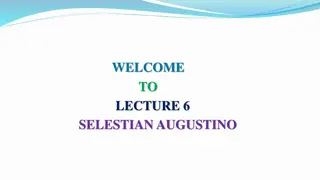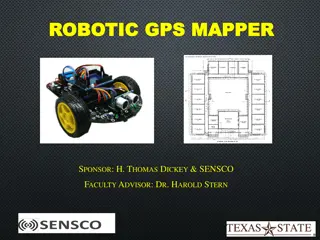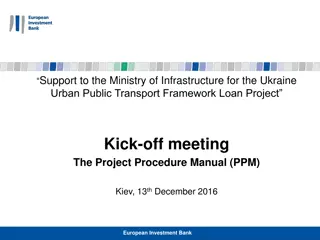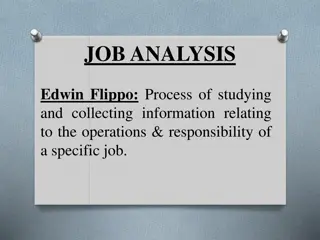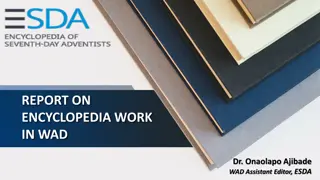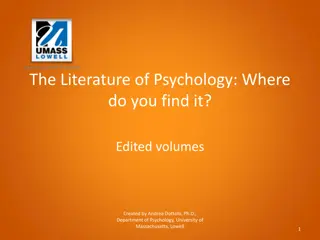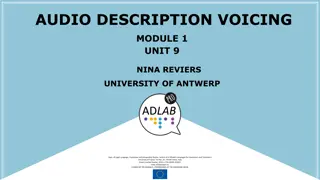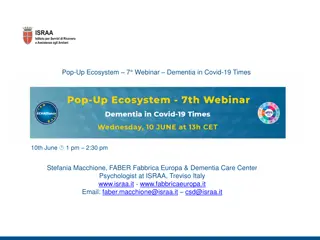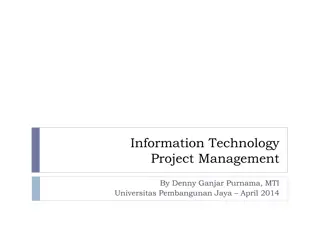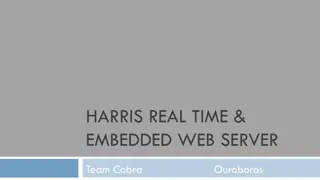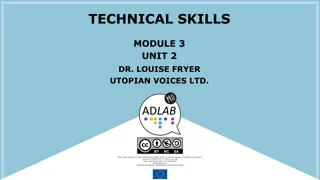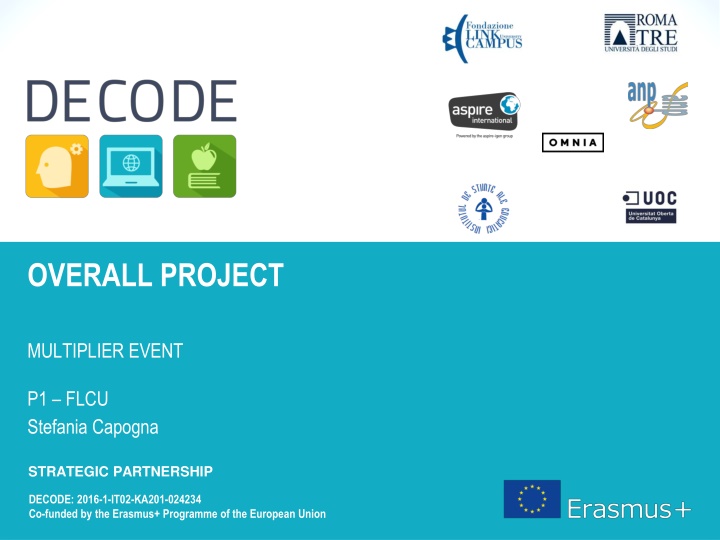
Strategic Partnership for Digital Competence Development in Education
"Enhance ICT integration in teaching practices through innovative methodologies, fostering a digital culture, and creating a network of educational institutions. Targeting headmasters, teachers, and decision-makers in a European collaborative effort."
Download Presentation

Please find below an Image/Link to download the presentation.
The content on the website is provided AS IS for your information and personal use only. It may not be sold, licensed, or shared on other websites without obtaining consent from the author. If you encounter any issues during the download, it is possible that the publisher has removed the file from their server.
You are allowed to download the files provided on this website for personal or commercial use, subject to the condition that they are used lawfully. All files are the property of their respective owners.
The content on the website is provided AS IS for your information and personal use only. It may not be sold, licensed, or shared on other websites without obtaining consent from the author.
E N D
Presentation Transcript
OVERALL PROJECT MULTIPLIER EVENT P1 FLCU Stefania Capogna STRATEGIC PARTNERSHIP DECODE: 2016-1-IT02-KA201-024234 Co-funded by the Erasmus+ Programme of the European Union
SUMMARY DECODE PROJECT DEvelop COmpetences in Digital Era. Expertise, best practices and teaching in XXI century 1. NEEDS, OBJECTIVES AND TARGET 2. METHODOLOGY 3. INTELLECTUAL OUTPUTS 4. EMERGING RESULTS
INSERT TITLE NEEDS, OBJECTIVES, TARGETS
DECODE NEEDS, OBJECTIVES, TARGETS CURRENT NEEDS One of the most important issues affecting the development of the old and new media in education is: the lack of a systemic vision of the different levels of education the lack of clear empirical data on the use both of these tools in teaching practices and in the definition of digital competences for teachers, headmasters and school staff
OBJECTIVES Promote the integration of ICT in teaching practices through the enhancement and set up system of innovative pedagogical educational methodologies, and the spread of best practices at European level, so as to: 1. provide decision-makers and institutions useful data for the definition of intervention strategies; contribute to the European debate on rethinking education in the digital age; promote a digital culture, through a multi-stakeholder approach; planning improvement actions targeted to the introduction, in the educational system, of training models and successful methodologies; establishing cooperation networks and partnership among different educational institutions; offer a replicable model of research-intervention in the area of ICT-based educational research. 2. 3. 4. 5. 6.
DECODE NEEDS, OBJECTIVES, TARGETS TARGET GROUPS 130 headmasters involved in the focus groups with the aim of detecting best practice, accompanying needs and coordination for the integration of ICT in teaching practices (I02) 30 implementation structures through interviews with key informants decision makers of local and national educational 2000 teachers from all levels of school, which will be involved in the detection of customs, practices, skills and training needs, for the development of digital skills 250 teachers will involved in testing for training in digital skills Around 100 people involved in all Multiplier Events
DECODE METHODOLOGY 1. THEORETICAL FRAMEWORK European Digital Framework Glossary Frequent Asked Question Research Design and Methodology 2. TOOLS Template for National Research Template Focus Group Template Interviews
NEEDS, OBJECTIVES, TARGETS INTELLECTUAL OUTPUTS
DECODE INTELLECTUAL OUTPUTS IO1 - Template for National Research and Tools IO2 National Reports "Innovative training models, methods and tools for teachers in the digital age IO3 - A Practical Guide for Schools - Quality Framework for Integrating ICT in the Teaching-Learning Process IO4 - National Reports "Practices, training and skills needs of the digital teachers" IO5 - Testing training models for improve teachers competence for digital era IO6 - Final comparative Report Guidelines for Teachers and Education Agencies
DECODE INTELLECTUAL OUTPUTS TEMPLATE FOR NATIONAL RESEARCH AND TOOLS (O1) IO1/A3 - Template for National Researches and Tools Roma Tre University IO1/A3 - Template for National Researches and Tools Roma Tre University The template is the reference for the researches that each country partner has to carry out at local level. The template aims: to be a reference for all national equips to give a common grid for collecting information and to present the national reports to offer a proposal for the national researches index
DECODE INTELLECTUAL OUTPUTS TEMPLATE FOR NATIONAL RESEARCH AND TOOLS (O1) IO1/A3 - Template for National Researches and Tools The national researches present: a reconstruction of the national scenario: trends and policies activated at national level in relation to the introduction of training models and successful methodologies to integrate into school staff digital competences a framework of the main national laws and legislative funding programs the identification of local good or best practices
DECODE INTELLECTUAL OUTPUTS TEMPLATE FOR NATIONAL RESEARCH AND TOOLS (O1) O1/A1 - Digital Pattern for education The EU member states have recognized the importance of teacher training and they are committed, with the European Council (2007), to develop digital skills in the initial training of teachers, and to continue to promote them through the top of the support career and continuing professional development (OCSE, 2015).
DECODE INTELLECTUAL OUTPUTS TEMPLATE FOR NATIONAL RESEARCH AND TOOLS (O1) The European Digital Agenda one of the seven pillars of Europe 2020 Strategy Main objectives of the European Digital Agenda: to better exploit the potential of Information and Communication Technologies (ICTs) in order to foster innovation, economic growth and progress; to ensure smart, sustainable and inclusive growth of the EU countries.
DECODE INTELLECTUAL OUTPUTS TEMPLATE FOR NATIONAL RESEARCH AND TOOLS (O1) The European Digital Agenda The seven pillars of Europe 2020 Strategy An infrastructure to ensure sustainable socio-economic benefits through the dissemination of broadband for all and defining a clear legal framework of rights and regulation of the global governance of Internet. Agenda for new skills and job : digital literacy growth of specific skills to be acquired lifelong [goal: to promote employment growth that in 2020 should cover 75% of people aged between 20 and 64 years]
DECODE INTELLECTUAL OUTPUTS TEMPLATE FOR NATIONAL RESEARCH AND TOOLS (O1) The European Digital Agenda The seven pillars of Europe 2020 Strategy Digital competence involves the confident and critical use of Information Society Technology (IST) for work, leisure and communication. It is underpinned by basic skills in ICT: the use of computers to retrieve, assess, store, produce, present and exchange information, and to communicate and participate in collaborative networks via the Internet . Recommendation 2006/962/EC of the European Parliament and of the Council of 18 December 2006 on key competences for lifelong learning [Official Journal L 394 of 30.12.2006].
DECODE INTELLECTUAL OUTPUTS TEMPLATE FOR NATIONAL RESEARCH AND TOOLS (O1) The European Digital Agenda The seven pillars of Europe 2020 Strategy The critical attitude and the responsible use of new technologies are recognized by the European Community as an integral part of digital competence, which therefore includes three basic dimensions - cognitive, technological and ethical - that integrated allow the subject to: manage life s events (develop critical thinking related with the use of ICT and know how to deal with problematic situations); manage change (to be able to accommodate changes produced by technological innovation); be an active social subject (to be part of a community and interact with it).
DECODE INTELLECTUAL OUTPUTS TEMPLATE FOR NATIONAL RESEARCH AND TOOLS (O1) The European Digital Agenda The seven pillars of Europe 2020 Strategy The European Digital Agenda states that it is essential to educate European citizens to use ICT and digital media and particularly to attract youngsters to ICT education . Digital literacy and competences are priorities for the European Social Fund regulation (2014-2020). It is crucial to develop tools to identify and recognise the competences of ICT practitioners and users, linked to the European Qualifications Framework and to EUROPASS and to develop a European Framework for ICT Professionalism to increase the competences and the mobility of ICT practitioners across Europe.
INSERT TITLE EMERGING RESULTS
DECODE INTELLECTUAL OUTPUTS FOCUS IO2 FOCUS GROUPS (March-May 2017) Focus group: Around 130 headmasters/school directors Each sessions involved around 10 persons (2/3 Focus Group Sessions for any partner country Focus groups Methodology: See Annex 1 (IO1) best practice, accompanying needs and coordination for the integration of ICT in teaching practices
DECODE INTELLECTUAL OUTPUTS (IO2) IN-DEPTH INTERVIEW WITH KEY ACTORS (March-May 2017) Deep interviews involved key actors (policy makers, decision makers, institutional representatives) Around 30 among policy and decision makers Methodology: See Annex 2 (IO1) to evaluate the steps taken by relatively governance integration of ICT in education system and teaching practices
DECODE PEOPLE INVOLVED FOCUS GROUP INTERVIEWS 40 5 IT 20 5 FIN 24 5 ES 24 5 EN 24 5 RO TOTAL 132 25
DECODE NATIONAL FRAMEWORK There are still major disparities regarding the implementationof digital innovation in school in relation to: 1. Educational system 2. Regulatory framework 3. Contractual framework 4. School organization 5. Dissemination of project
SWOT ANALYSIS Weaknesses Strenghs Lack of national coordination; Lack of budget and ICT training for teachers Absence of a new school model able to redefine roles/vision in teaching system Unwillingness of staff in learning new skills and change approach Heterogeneity training and teaching skills Growing committment to introducing digital culture in school Freedoom for innovative approach Enhanching the role of students Appearance of communities of practice of teachers Schools as places of experimentation and innovation
SWOT ANALYSIS Risks/Treats Opportunities Technological determinism Perverse effects related to the transmission of knowledge and digital gap Lack of system for the recognition of professional experience in the use of ICT Obsolescence Growing collaboration among school and external system, local communities Enhancing territorial excellence
DECODE INTELLECTUAL OUTPUTS (IO2) to conclude How is our contribution like educators, researchers and institutions to face digital challenge, empower people and contribute to innovate education environment and processes by digital technology?
DEvelop COmpetences in Digital Era. Expertise, best practices and teaching in XXI century http://decode-net.eu/ Contact person Stefania Capogna: s.capogna@unilink.it
DECODE INTELLECTUAL OUTPUTS (IO2) QUESTION TIME FOR ROUNDTABLE 1. Elements of interest and critical issues in relation to digital revolution and educational emerging trends 2. Risks and opportunities in the relationship between school and society What is the emerging educational ideal in digital society? What are the new legitimation funds in the relationship between school and society What are the most important effects that ICTs produce on digital natives and school cannot see? 3. Any other questions, suggestions and comments or best practice

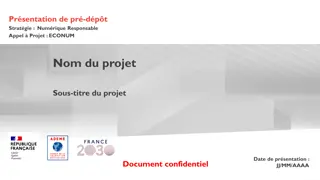
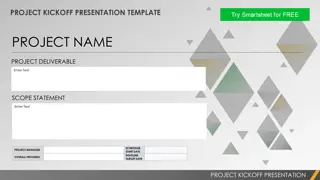

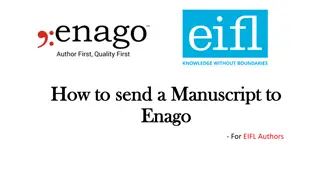


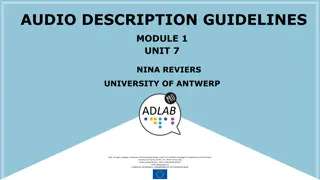
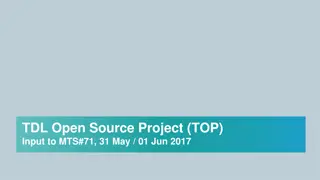
![Project Initiation Document for [Insert.Project.name] [Insert.Project.number]](/thumb/226757/project-initiation-document-for-insert-project-name-insert-project-number.jpg)
